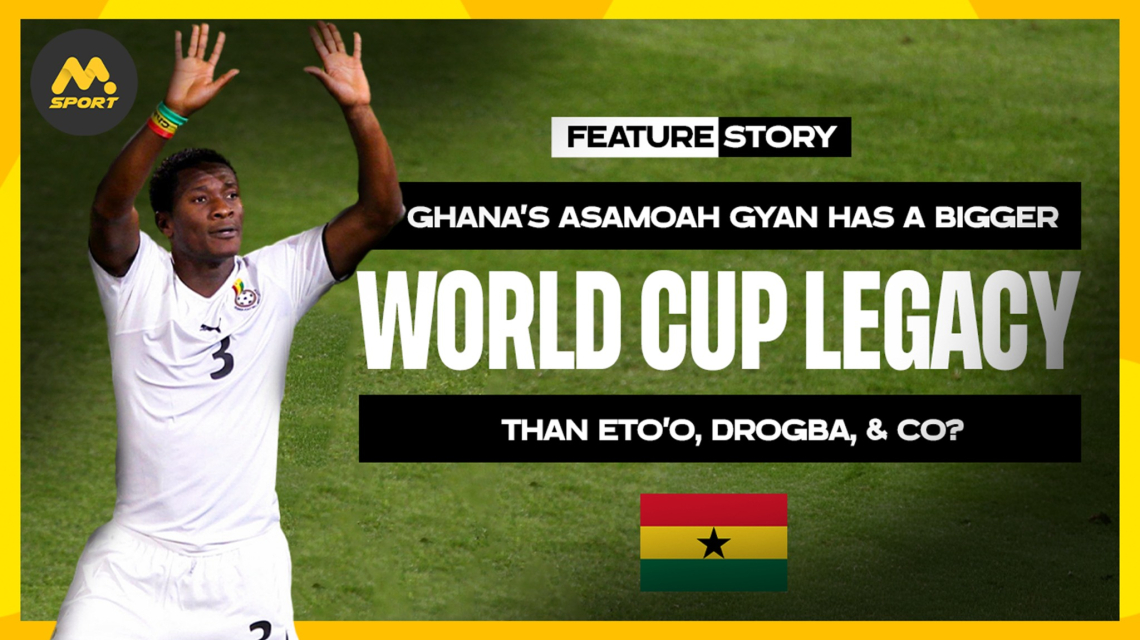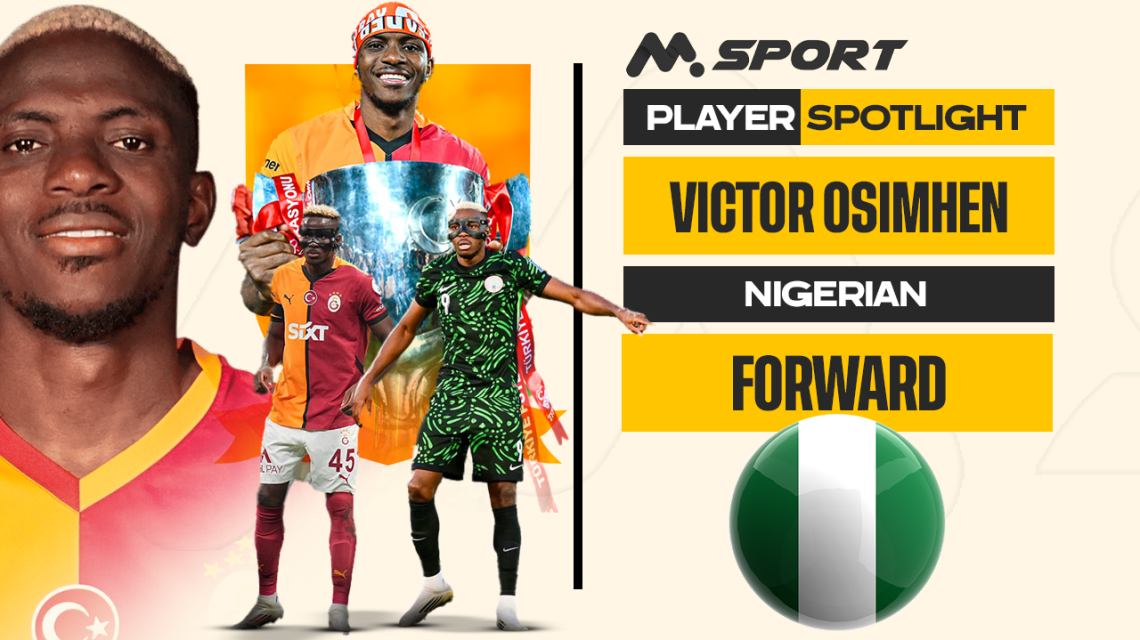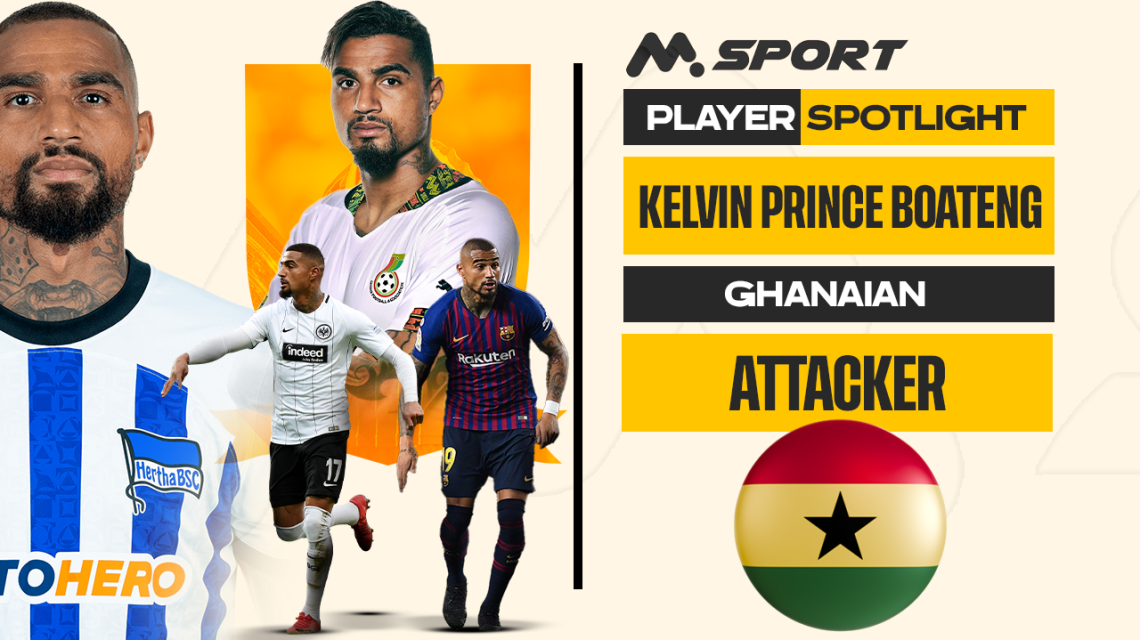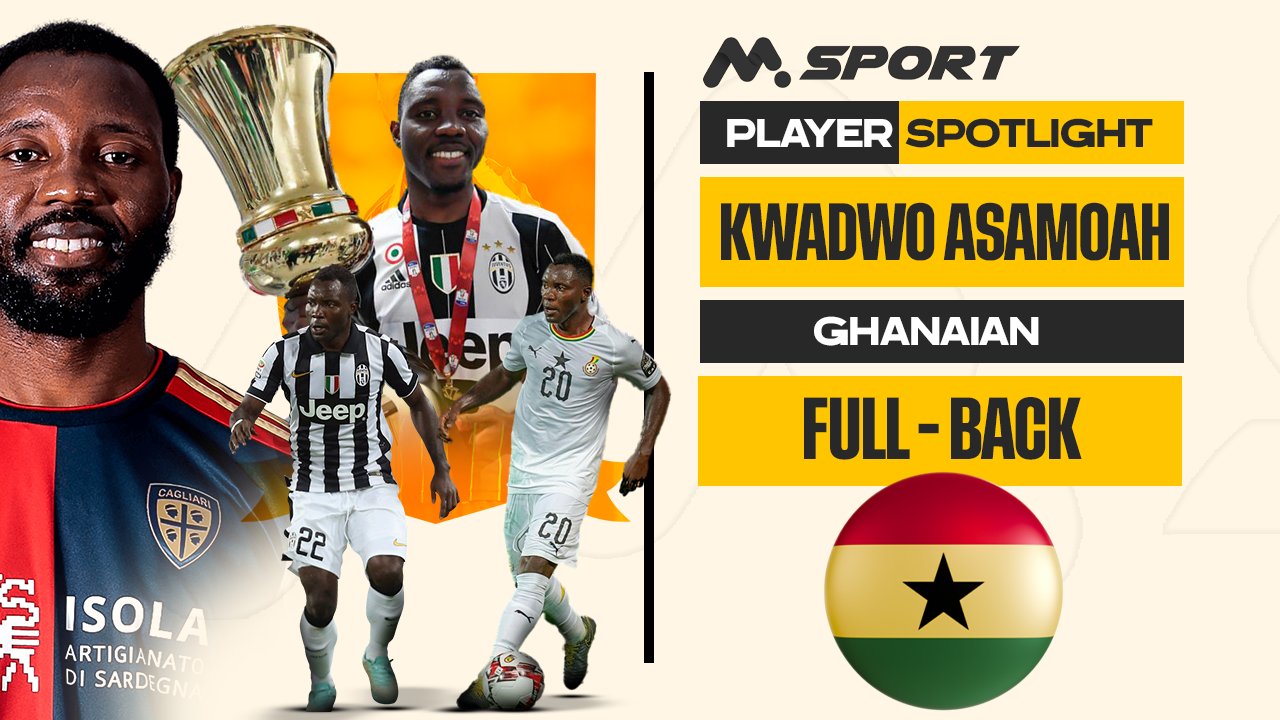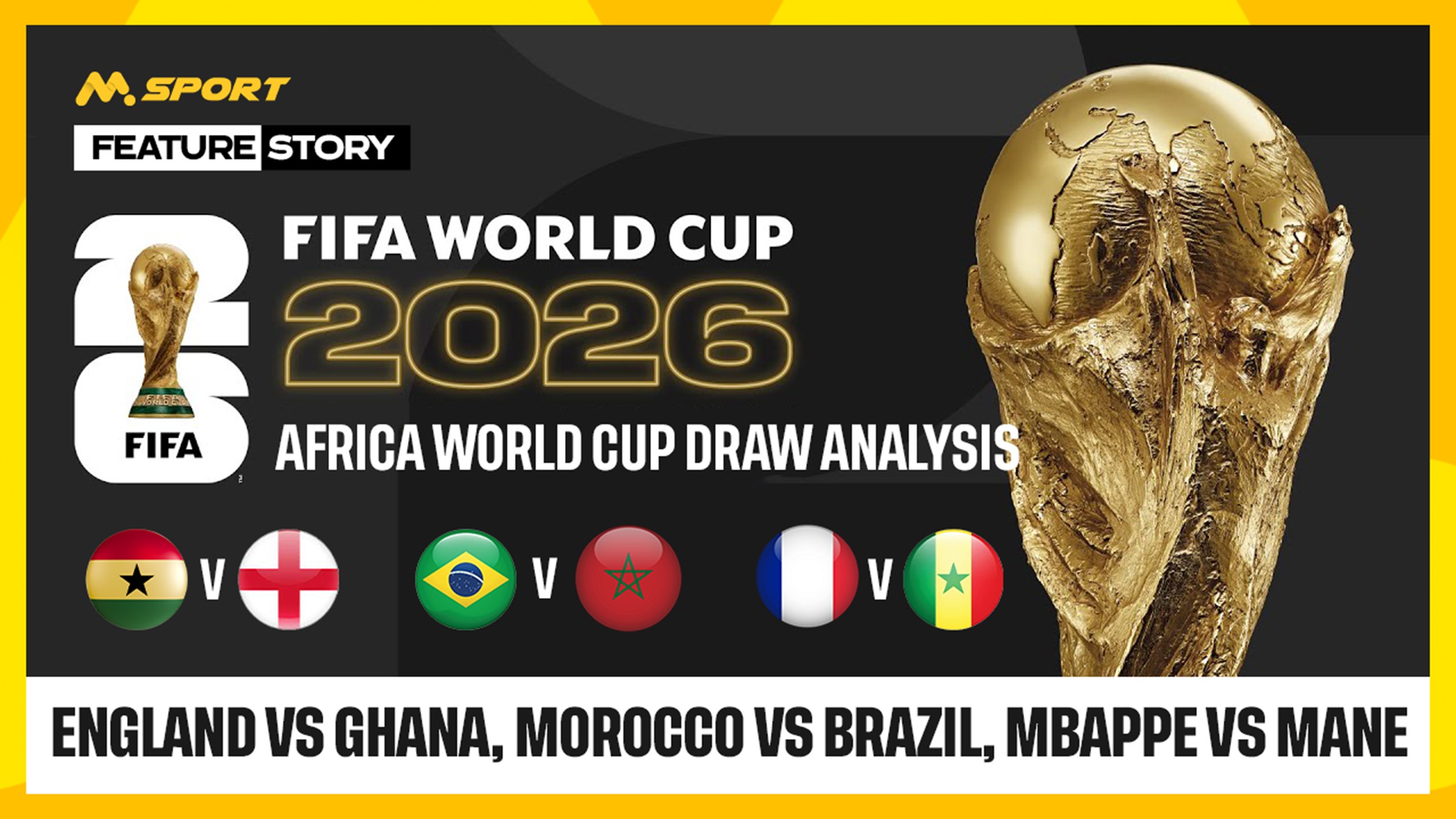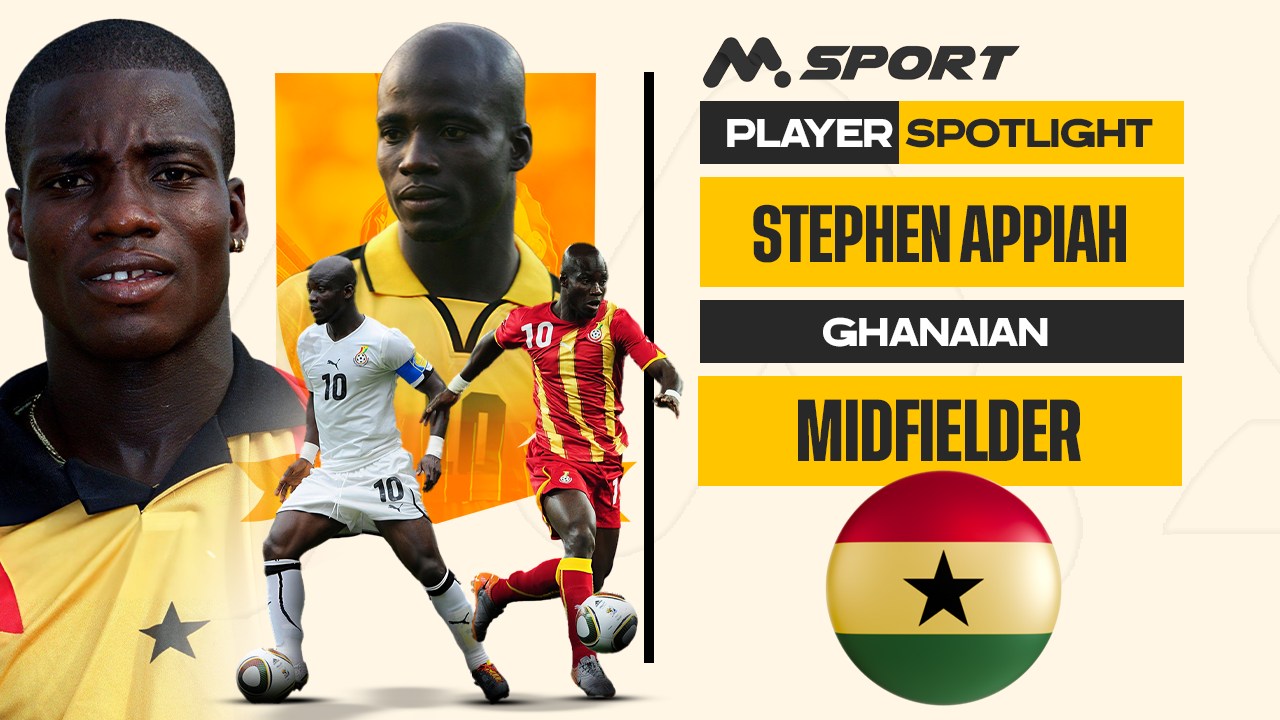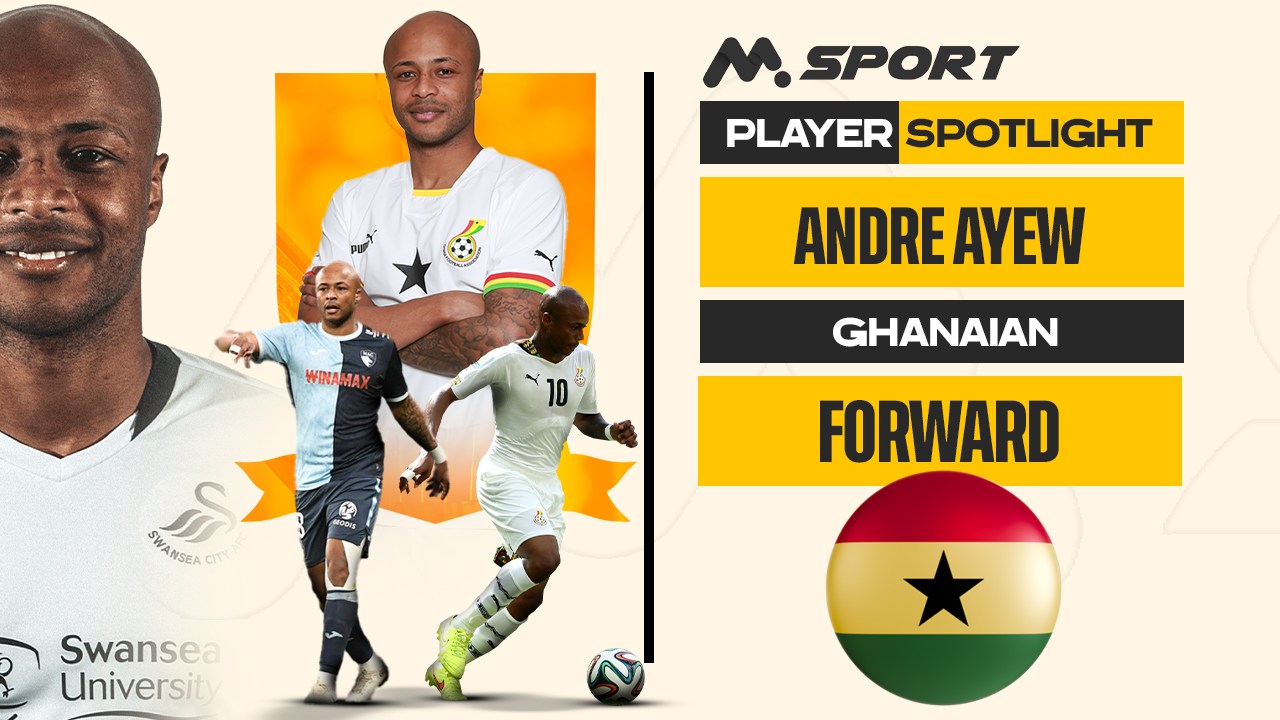The case in one line: Asamoah Gyan’s World Cup story is not just about goals — it’s about milestones for African football, moments that bent tournament history, and a record few of his continental peers have matched on football’s biggest stage.
🌍 Record Breaker — Most World Cup Goals by an African ✳️
Asamoah Gyan sits at the top of a very specific and illuminating leaderboard: World Cup finals goals by an African player.
Across three tournaments (2006, 2010, 2014), Gyan collected six (6) World Cup goals — a tally that moved him past previous continental marks and put him alone among African scorers in World Cup finals history.
That raw number matters because the World Cup is the single most visible stage in football; scoring there repeatedly cements a legacy in global memory.
🇬🇭 Big Moments — He Carried Ghana Deeper Than Most🔑
Gyan didn’t just score in group games; he delivered decisive goals that lifted Ghana into uncharted territory. His extra-time winner against the United States in 2010 sent Ghana into the World Cup last eight — only the third African country to reach that mark — and he led the team as captain and focal point across multiple tournaments. Those decisive contributions — not just cumulative numbers — are what make his World Cup standing distinctive.
😬 What If — The 2010 Quarter-Final: A Moment That Defined a Generation 🎭
Legacy is partly narrative. The image of Gyan stepping up for the last-minute penalty against Uruguay in 2010 — after Luis Suárez’s infamous handball — is forever woven into World Cup lore.
The miss (and the drama around the incident) elevated Gyan’s profile worldwide; it also crystallised Ghana’s near-miss as a continental “almost” that people still debate. That one moment magnified everything he had achieved up to that point.
❓Why This Outshines Trophies — Comparing World Cup-Specific Legacy, Not Club CVs 🏆vs🌐
Many great African stars named in the debate — Samuel Eto’o, Didier Drogba, Mohamed Salah, Sadio Mané, Yaya Touré, Jay-Jay Okocha — built careers defined primarily by club success and continental accolades.
That matters hugely. But measured only by World Cup imprint (goals, decisive knockout contributions, and historical firsts), Gyan’s record is unusually World Cup-centric.
Didier Drogba, for instance, was the Ivory Coast’s talisman and scored at World Cups, but his tournament footprint did not include the same mixture of record-setting goal totals and deep knockout moments for his nation that Gyan produced.
📺Context Matters — Visibility, Timing, and Representation 🌐
Gyan’s peaks came when African teams were under intense global scrutiny (2006–2014). Scoring the fastest Ghana World Cup goal in 2006, powering the 2010 run, and then overtaking old African marks in 2014 meant his achievements were seen, talked about, and preserved in tournament history.
A different sort of legacy than continental trophies or club Champions League nights. FIFA and mainstream match reports recorded and amplified these milestones.
🔚Conclusion — Legacy Is a Lens, Not a Résumé:
If the greatest is measured by club trophies, Eto’o, Drogba, or Salah will dominate debates. But suppose the question is who left the most indelible, World Cup-specific mark for an African nation.
In that case, the case for Asamoah Gyan is strong: most World Cup goals by an African, match-winning knockout moments, and a single dramatic image that still defines a tournament era. That is a legacy of the World Cup — unmistakably Gyan’s.
🔗You can check out today’s games on MSport.
#FIFAWorldCup #WorldCupQualifiers #Nigeria #CAFQualifiers #Brazil #Portugal #CR7 #AsamoahGyan #WorldCup #AfricanFootball #BabyJet #Ghana #FIFA #CAF #Legend ⚽🔥

